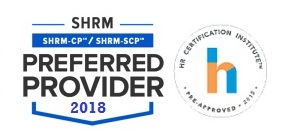FCE & Post-Offer Testing in the Era of ADA Title I
Contact Hours: 6.0
Tuition: $395
Each day across America hundreds of new hire post-offer employment tests, worker’s compensation return-to-work functional capacity evaluations, and stay-at-work functional capacity evaluation are conducted conducted by occupational therapists, physical therapists, ergonomic evaluators, physician assistants, and medical doctors. And most of these work readiness assessments are administered outside of compliance with Title I of the Americans with Disabilities Act. It is imperative that each medical professional who provides information about an individual’s ability to begin work in a new job or return to in a job to which he is attached become well acquainted with the test administration rules laid down by the Equal Employment Opportunity Commission (EEOC), and the federal courts.
Examples of private attorney, federal court, and EEOC actions against medical providers are published daily:
- A negative return-to-work decision by a physician and physician assistant trained in functional capacity evauation lacks suggestions for reasonable accommodation
- The functional capacity evaluation of a critical physical demand of an essential function is purposely rigged against an unpopular employee
- A therapist conducting a post-offer employment test to a group of women changes the wording of a test instruction so a lift test becomes an endurance test which in turn leads to a major gender-based disparate impact lawsuit
- An Illinois functional capacity evaluation system compares a worker’s functional ability against another worker’s ability rather than against the demands of the job in question
- A post-offer tests includes a two-page medical questionnaire that probes the medical status of family members
Each of these test adverse impact events was based on ignorance of the current rules guiding medical examination under ADA Title I. And each of these cases resulted in considerable settlements against the employer and/or medical professional responsible for the design of the employment test or the execution of the test protocol. And none of these evaluation protocols was the result of a “home grown” system of evaluation.
Course Topics
- Understand when and how a post-offer employment test or functional capacity evaluation is an ADA Title I medical examination
- Update your current test protocols based on recent federal court, EEOC, and private attorney settlements
- Understand when a physician assistant’s return to work note becomes an ADA Title I medical examination
- Learn the importance of denying testing while not making a hiring or return-to-work decision
- Understand how and when physical effort tests may not be in compliance with federal law
- Learn how to update your documentation process so as to reduce the likelihood of EEOC or plaintiff attorney charges
- Learn the legal implications of functional capacity evaluation test protocols developed with a focus on commercialization of testing equipment rather than on fidelity to 42 U.S.C. § 12112 (d) medical examinations
- Become skilled in including recommendations for reasonable accommodation in your evaluation reports
- Analyze your clinical website for the presence of plaintiff attorney triggers (why advertise that you are not in non-compliance?)
- Become an asset to employers and case managers relative to best practices for testing and medical history questionnaires
- Anticipate and respond to corporate counsel’s challenge of “how many of these cases have you ligitated”
- Appreciate why out-dated methods of job analysis (i.e. the 1978 Uniform Guidelines on Employee Selection Procedures (UGESP)) are not useful under ADA Title I
- Prepare to provide guidance to corporate counsel about the need to update essential function job analysis
- Use Federal Rule of Evidence 702 as a framework for structuring and defending your functional capacity evaluation and post-offer test reports
Course Modules
Module 1 – Preview of What Lies Ahead
Module 2 – Introduction to the Course
Module 3 – Rationale for Testing Under ADA Title I
Module 4 – Essential Function
Module 5 – Job Related Qualification Standards
Module 6 – EEOC v Dial
Module 7- Medical Examinations – Part 1
Module 8 – Medical Examinations – Part 2
Module 9 – Medical Examinations – Part 3
Module 10 – Medical Examination – Part 4
Training Materials
This course uses a variety of printed and digital media including:
- 48-page course manual with charts, legal opinions, and forms
- EEOC Enforcement Guidance files relevant to Title I medical examinations
Bonus Reference Guide
Each participant in our training programs receives a copy of “Roy Matheson’s The Americans with Disabilities Act – Title I Case Reference Document”. This resource includes a copy of ADA Title I, a compendium of federal court and EEOC settlement documents pertaining to employment testing “do’s and don’ts”, and an important discussion of “Undue Hardship”, published in the Fordham Law Review by author Julie Branfield. (see: Julie Brandfield, Undue Hardship: Title I of the Americans with Disabilities Act, 59 Fordham L. Rev. 113 (1990). Also available at http://ir.lawnet.fordham.edu/flr/vol59/iss1/4).
Some of the content of the course manual is duplicated in the Reference Document. We provide the materials in both places as we update the Reference Document on a fairly regular basis. We would rather you have the material in two places than not at all.
The case reference document is updated from time-to-time with relevant cases or citations. The revised document is sent to each student who has participated in a training program and whose contact information is up-to-date in our database.
 Roy Matheson, ADAC has presented as a keynote speaker, panelist, trainer, or workshop instructor at more than 400 public and private educational events, management training programs, and national conferences. His audience includes managers and staff of federal, state, county, and municipal government entities as well as the full spectrum of corporate entities serving the United States, Canada, and 6 other countries. Roy’s body of work includes hundreds of online webinars and blogs related to Title I of the ADA and the Rehabilitation Act.
Roy Matheson, ADAC has presented as a keynote speaker, panelist, trainer, or workshop instructor at more than 400 public and private educational events, management training programs, and national conferences. His audience includes managers and staff of federal, state, county, and municipal government entities as well as the full spectrum of corporate entities serving the United States, Canada, and 6 other countries. Roy’s body of work includes hundreds of online webinars and blogs related to Title I of the ADA and the Rehabilitation Act.
His consulting and guidance assignments address legal compliance issues raised by Title I of the Americans with Disabilities Act and Section 501 of the Rehabilitation Act. These issues include aspects of employment testing, essential function job analysis, and reasonable accommodation program start-up and management. Roy sees himself as a trusted adviser in demanding situations requiring clear, well-thought-out guidance within the environment of employment and disability-related civil rights law.
$395.00Add to cart
![]()




